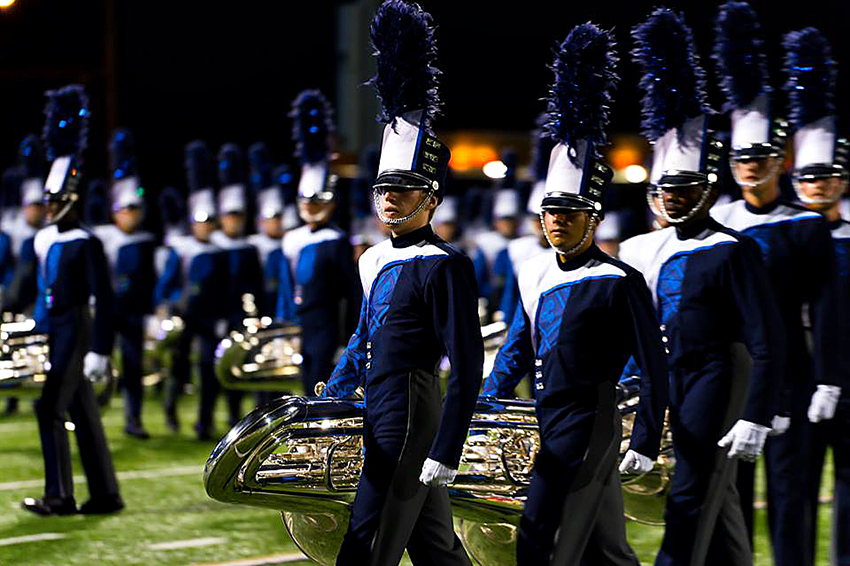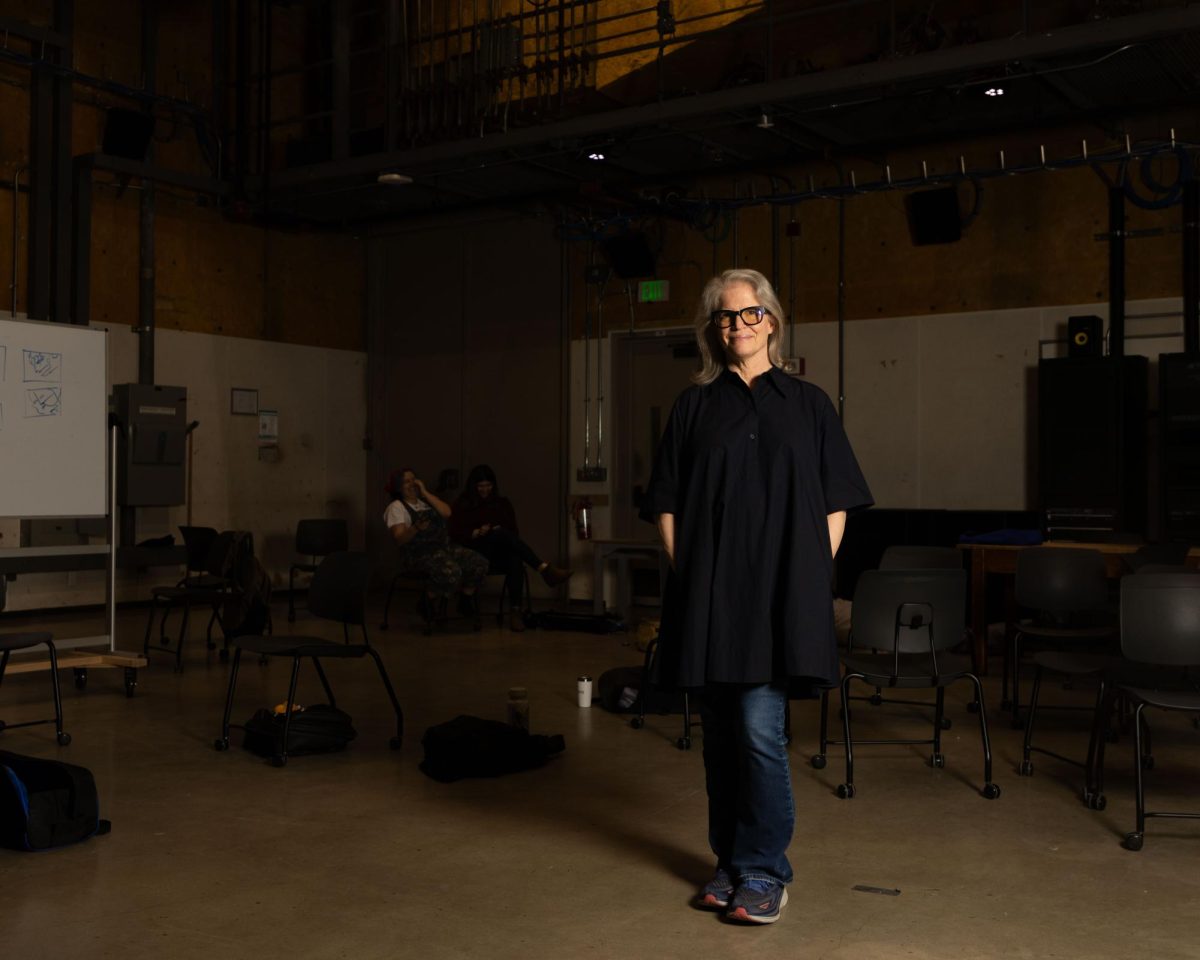As the Spirit of Atlanta Drum and Bugle Corps’ drumline turned from backfield, they fell behind the tempo of the entire corps. If something wasn’t done fast, their show performance would fall apart.
Jack Roberts, a music composition and Longhorn Band alumnus, anticipated this happening — such mishaps had plagued their entire 2016 season. He and his fellow drum majors reacted quickly, working to successfully conduct the ensemble back into harmony.
Despite running into this problem the whole season, Roberts said that these close calls are a blur in his memory.
“A lot of the shows blend together unless there was something really weird that happened,” Roberts said. “(During performances,) you’re in the zone, you’re super focused — almost like tunnel vision — on what you have to do.”
Each summer, a few LHB members use the football offseason to march under Drum Corps International, a nonprofit organization overseeing competitive junior drum and bugle corps throughout North America.
The journey toward marching under DCI begins with an audition process for one of 46 world or open class drum corps. After auditioning, prospective corps members are either rejected or offered a contract. José Cervantes, a biology sophomore and three-year Blue Stars tuba player, said that signing a contract means agreeing to the unknown.
“If you get a contract, that’s cool and all, but at the end of the day, you don’t know anyone yet,” Cervantes said. “Every corps is a little bit different, and you don’t know what you’re going to expect.”
The contract also means agreeing to a rigorous lifestyle. From 7 a.m. to 11 p.m., corps usually incorporate three sections into their everyday schedules: marching, sectional rehearsal and full ensemble rehearsal. This busy schedule differs greatly from that of LHB, which includes six hours of rehearsal each week and Saturday football games. Roberts said their limited free time is a sacrifice for this unique experience.
“You just have to roll with the punches,” Roberts said. “It’s not super pleasant, but at that point, you’re immersed in the lifestyle enough that you’re equipped to roll with it.”
Their schedules prepare the drum corps for nearly 30 performances nationwide. Numerous performances means traveling with limited luggage and sleeping in high school gyms. Though their time spent away from LHB can prove lonely, Cervantes said that he’s comforted by friendships he’s made with members from across America.
“I can go to any major city, and I know I can spend a night there with someone,“ Cervantes said. “I know they’re going to have my back no matter what, whether it’s at 3 a.m. or 3 p.m.”
Spending the summer building bonds through DCI or pursuing internships is a choice that many LHB members struggle to make. While the minimum age to march under DCI varies by corps, the universal age limit is 21. At age 20, Edwin Silerio, a computer science junior and first-year Madison Scouts trumpet player, said that internships can wait.
“You can still do (major-related work) afterwards when you come back, but you have a limited time to do (DCI ),” Silerio said.
Silerio said that his tough decision has reignited his competitive drive for marching band that’s been put out by LHB and helped begin his journey toward self-discovery.
“You handle a lot more than you think you can, and you learn all the little things about yourself as you keep going throughout the season.” Silerio said.















